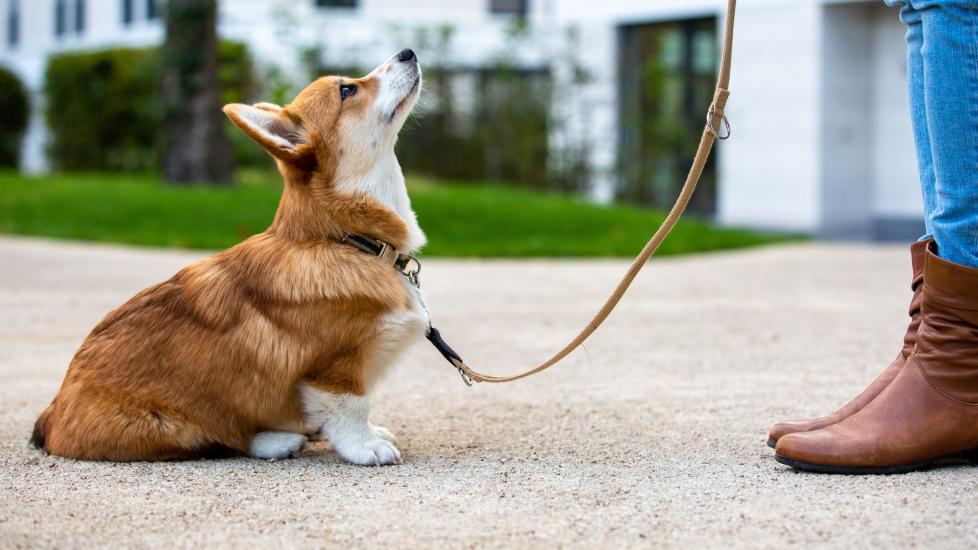
Understanding Dog Aggression Towards Cars: Causes and Solutions
Share
For health-conscious pet owners, addressing the issue of dog aggression towards cars is essential for ensuring both the safety and well-being of your beloved canine companion. Often, the sight of a moving vehicle can trigger aggressive behavior in dogs, making walks and outings an unpredictable endeavor. In this comprehensive guide, we will delve into the roots of this common behavioral issue and explore effective methods to manage and mitigate it, ensuring a harmonious and safe environment for both your dog and others.

Why Does Car Aggression Occur in Dogs?
Dog aggression towards cars is a multifaceted problem often stemming from a mix of fear, frustration, or an unfulfilled prey drive. Understanding the underlying causes is the first step towards finding a long-term solution. Fear can be a predominant factor, with dogs perceiving vehicles as large, fast-moving threats. Alternatively, frustration muses when a dog is restrained on a leash, unable to chase what they perceive as prey.
Such behavior can be inadvertently reinforced if the dog has had a past experience where they could chase a car and have their adrenaline rush rewardedalbeit dangerously. Tackling this issue begins with recognizing these triggers in your dog's environment and behavior.
Training Techniques to Calm Your Dog
Training your dog to reduce its aggression towards cars involves patience, positive reinforcement, and consistency. One effective technique is counterconditioning, which helps change your dog's emotional response to the stimulus of a moving car. Start this process by ensuring a safe distance from traffic and rewarding your dog with treats or praise when they remain calm.
Gradually decrease the distance over time, reinforcing calm behavior. It's vital to address any aggressive reactions calmly and without punishment, which can exacerbate anxiety and aggression. How to train your dog effectively can provide more insights into successful training strategies.
Safety Measures for Walking Your Dog Near Traffic
Ensuring your dog's safety is paramount, especially when near traffic. Utilizing the right tools can make a huge difference. A durable leash and a properly fitted harness can give you better control over sudden jerks or attempts to chase vehicles. Additionally, practicing walks in less busy areas can help reinforce positive behaviors over time before gradually reintroducing them to busier roads.
Distracting your dog with toys or commands can redirect their attention away from vehicles. Incorporating these activities not only aids in managing aggression but also fosters a healthy mental and physical outlet for your dog's energy.
Understanding Aggression in Broader Context
While dog aggression towards cars is a concern, aggression towards other stimuli like household objects also exists. It's essential to observe your dog's behavior across multiple contexts and to seek professional help if necessary.
Understanding different types of aggression can aid in addressing not just immediate issues but provide cues on bonding and training effectively with your pet over time.
Seek Professional Help When Needed
If your dog's aggression towards cars persists despite consistent efforts, it might be beneficial to consult a professional dog trainer or behaviorist. These experts can provide advanced techniques and personalized support to resolve behavioral issues and can often identify subtle cues that might be missed by inexperienced eyes.
In many cases, addressing aggressive behaviors towards cars is a team effort, involving you, your dog, and a professional, ensuring the behavior is managed effectively and safely.
Additional Resources for Pet Owners
Understanding dog barking can provide insights into related behaviors, as barking often accompanies aggression. For those curious about breed-specific traits that might influence behavior, exploring content on breed characteristics can be enlightening.
Enriching your knowledge through these resources can empower you with the tools needed to create a more understanding and nurturing environment for your pet.

FAQ Section
Can all breeds develop aggression towards cars?
Yes, any breed can show aggression towards cars, though the triggers and intensity may vary depending on individual temperament and experiences.
Is professional training necessary to manage this aggression?
While many owners can manage car aggression at home with patience and the right techniques, consulting a professional can benefit persistent or severe cases.
How long does it typically take to see improvements?
The timeline can vary widely based on the individual dog and their past experiences. Consistency is key, and some improvements can be seen within weeks, while others may take months.
This article contains affiliate links. We may earn a commission at no extra cost to you.
